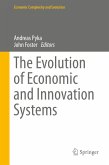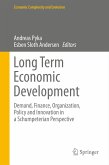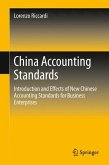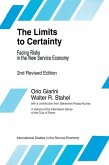According to its proponents, the `new economy' is associated with sustainable growth, increased demand for labor and zero inflation. On the micro-level, this bright avenue into the future is propelled by knowledge capital, flexibility and new ways of organizing production, such as clusters and networks. Progress in information technology, together with massive deregulation on the national and the international levels, have been credited with setting this development into motion. The concept of the `new economy' has been rapidly embraced by politicians, as it seems to offer a way out of the traditional trade-off between unemployment and wage inflation. However, empirical evidence regarding the microeconomic mechanisms of the `new economy' is scarce.
Knowledge Capital and the `New Economy': Firm Size, Performance and Network Production intends to narrow this gap by empirically analyzing the composition of knowledge capital and how knowledge capital is distributed across firms of different size. Moreover, the impact of knowledge capital on firms' profitability and international competitiveness is also examined. Finally, we compare cluster dynamics and the institutional set-up in Europe and the U.S., with the purpose of identifying regulations that seem to hinder a conducive environment for expanding and dynamic European clusters. The results of this study emphasize the role of knowledge capital and flexibility. Thus, irrespective of how sustainable the `new economy' turns out to be, the policy implications in terms of providing institutions that facilitate knowledge-enhancing economic activities, flexible markets and transparent incentive structures are undeniable. Countries that fail in this respect may find themselves trailing in the international growth and welfare rankings.
Dieser Download kann aus rechtlichen Gründen nur mit Rechnungsadresse in A, B, BG, CY, CZ, D, DK, EW, E, FIN, F, GR, HR, H, IRL, I, LT, L, LR, M, NL, PL, P, R, S, SLO, SK ausgeliefert werden.









